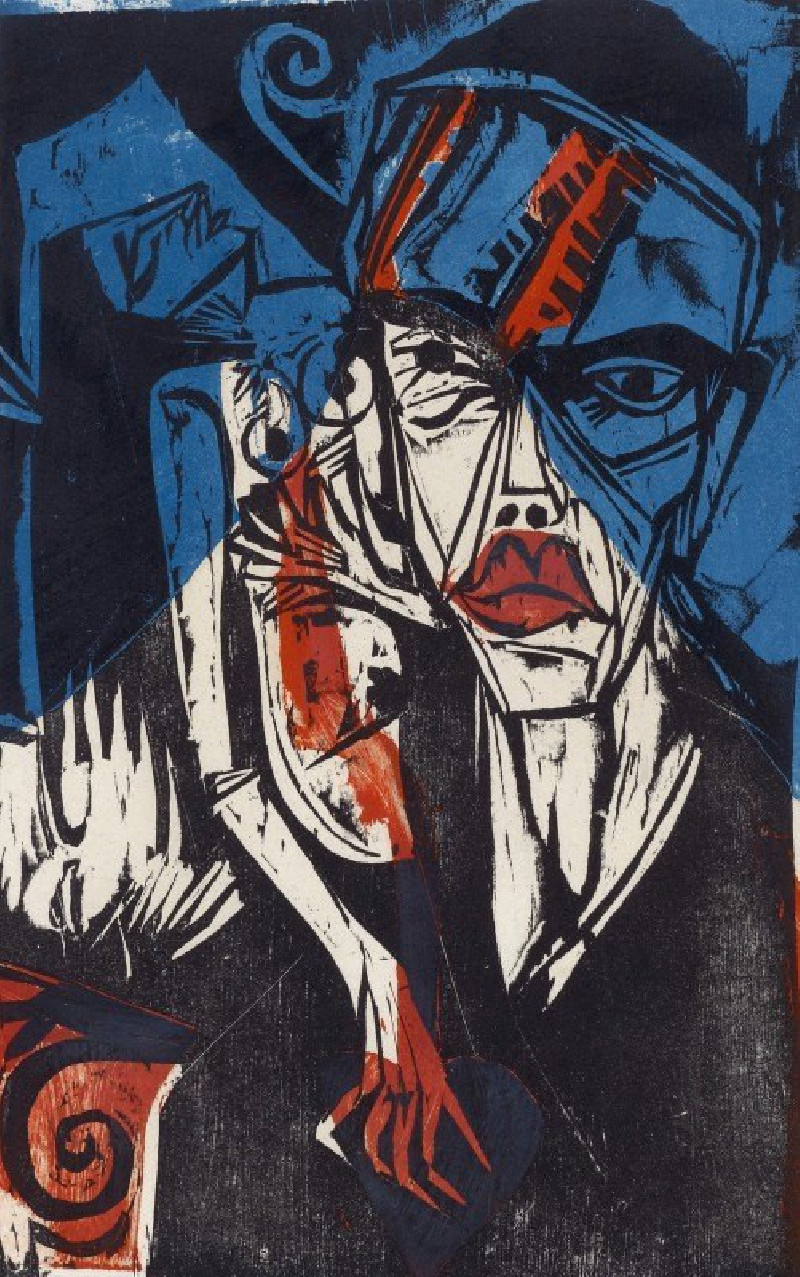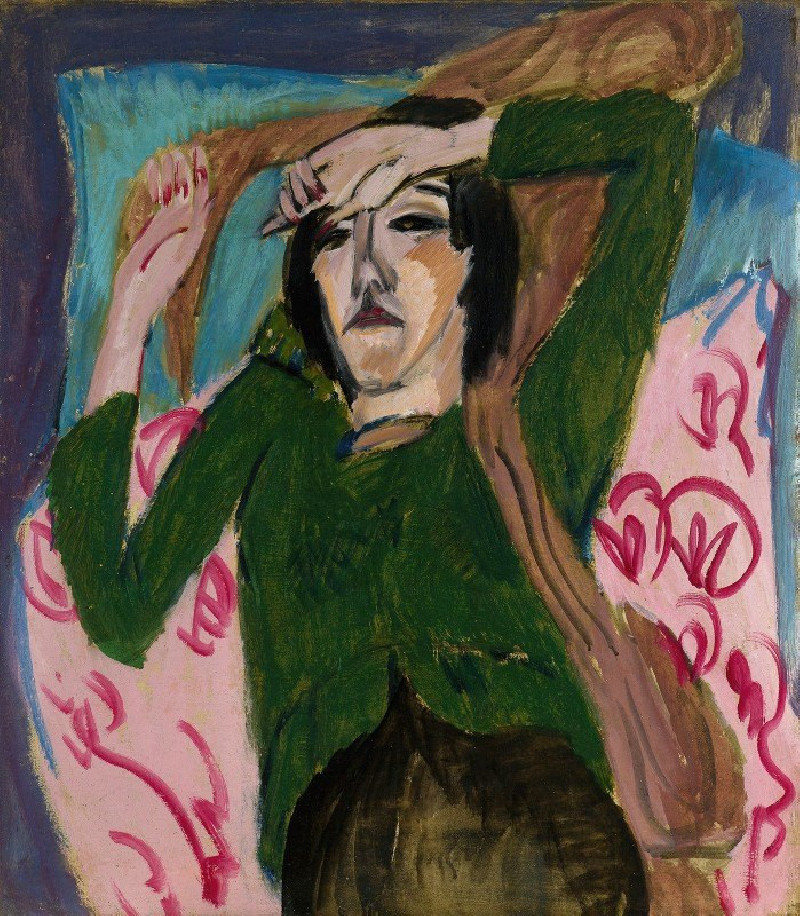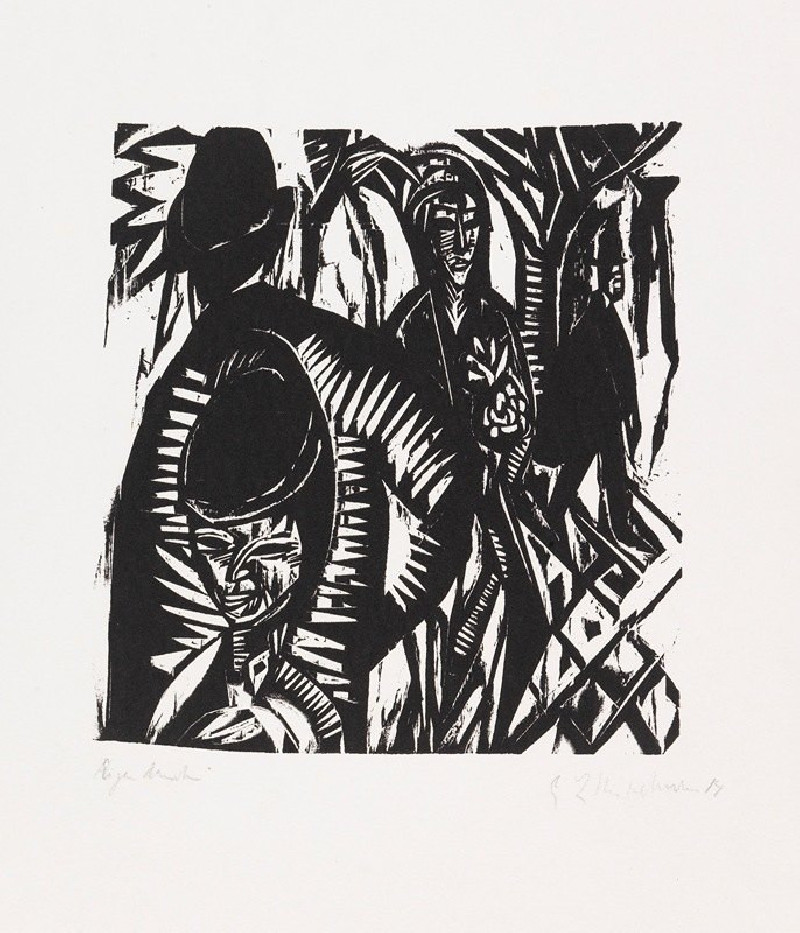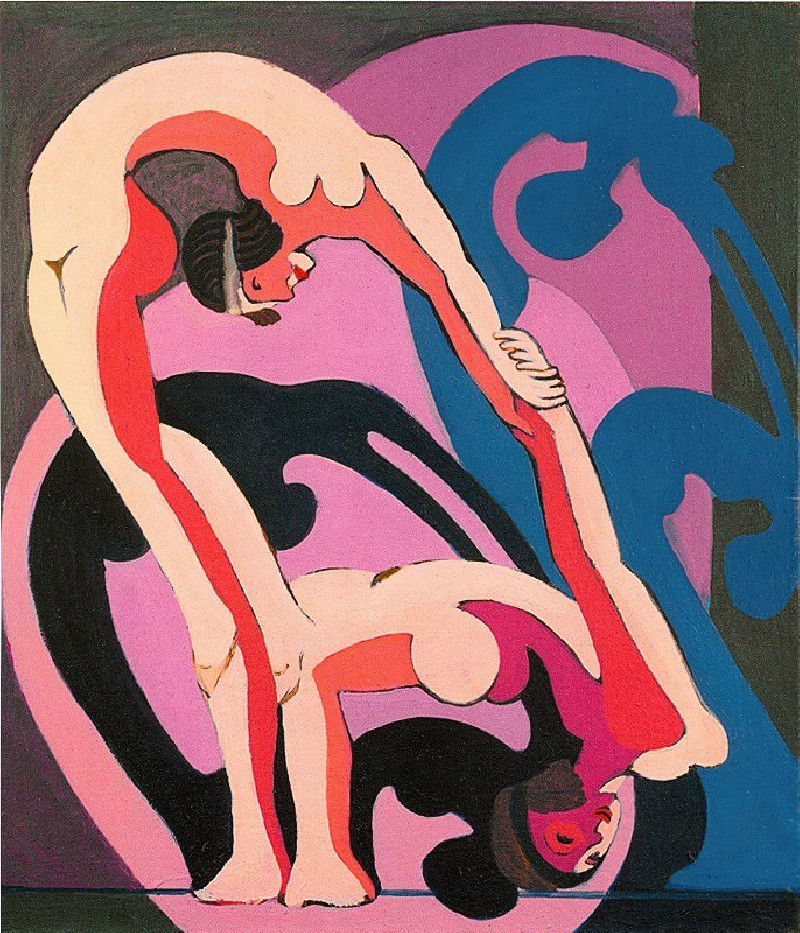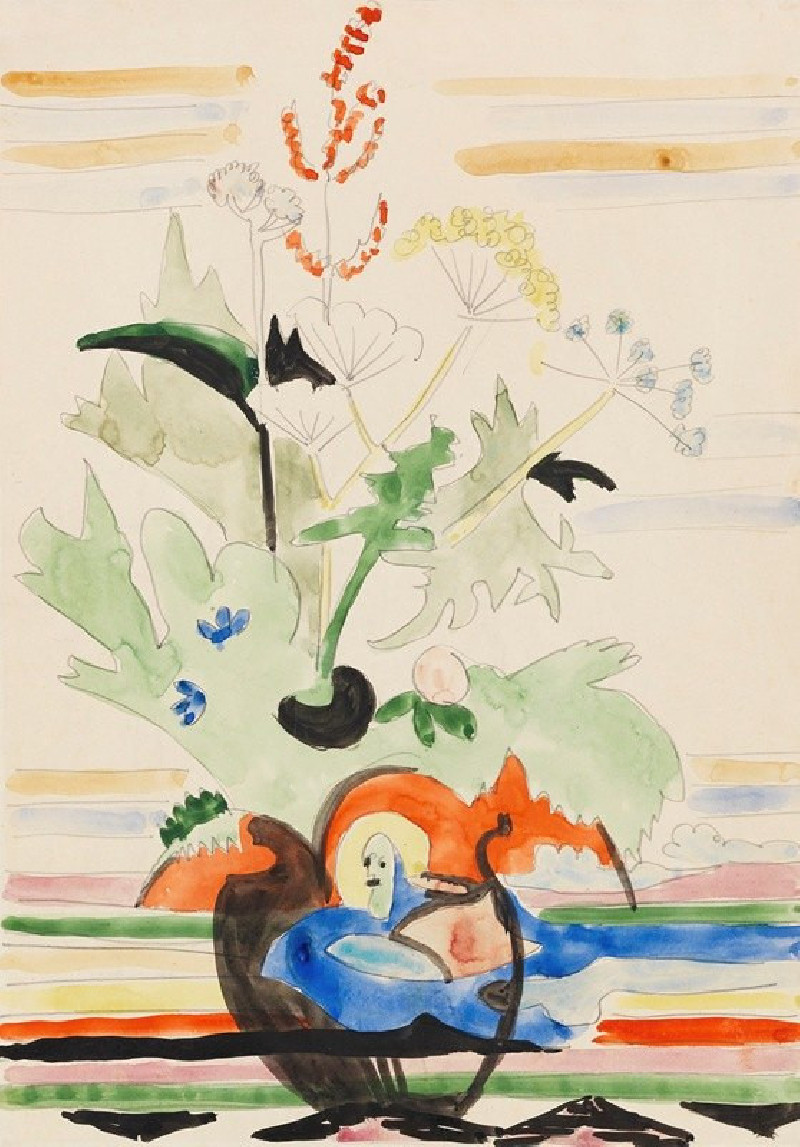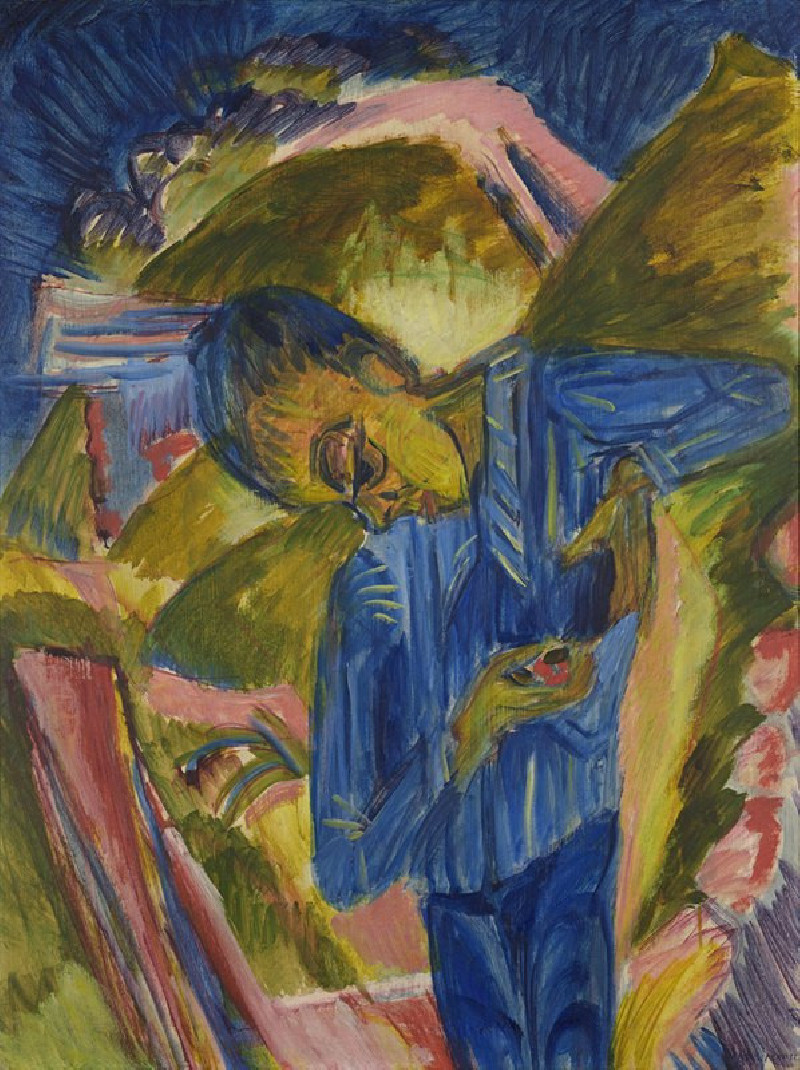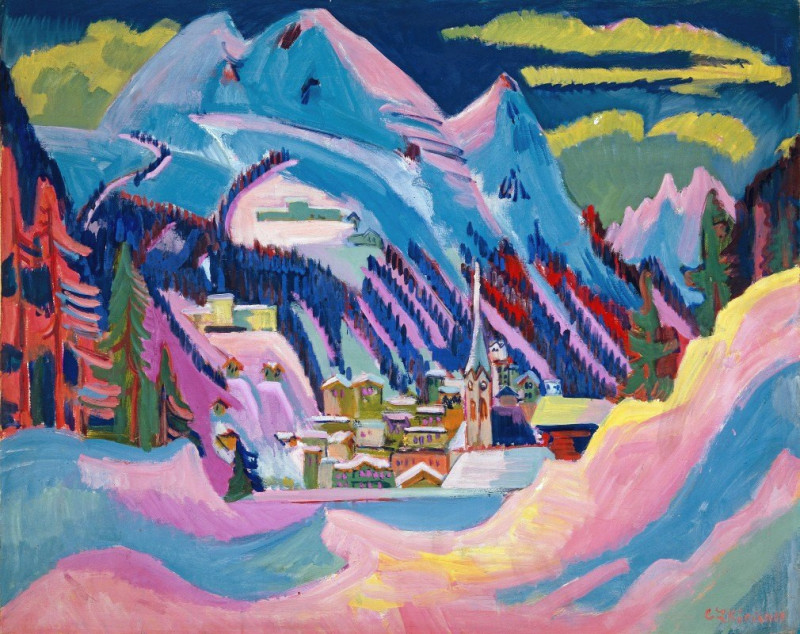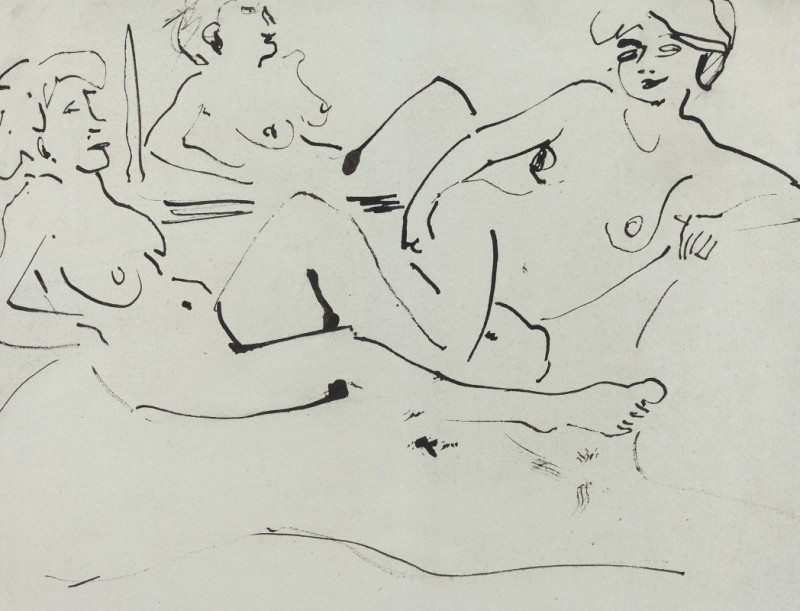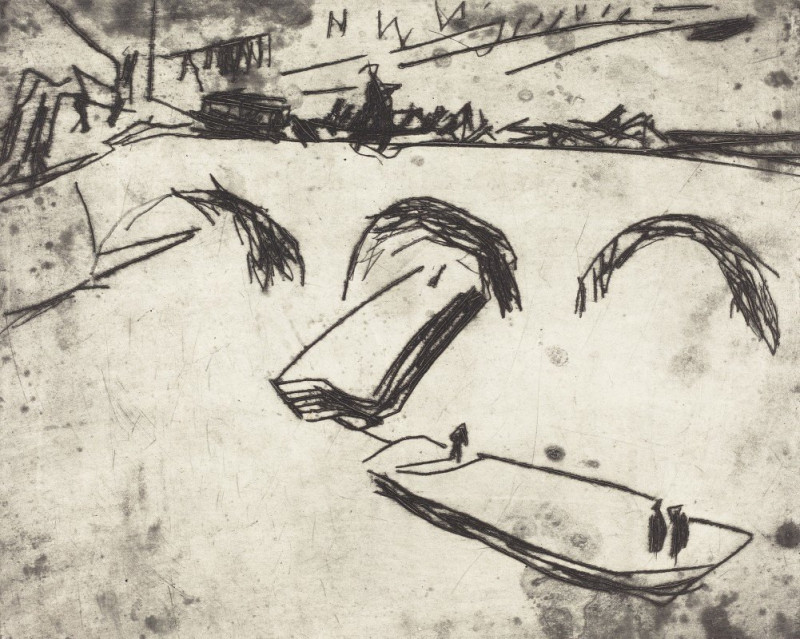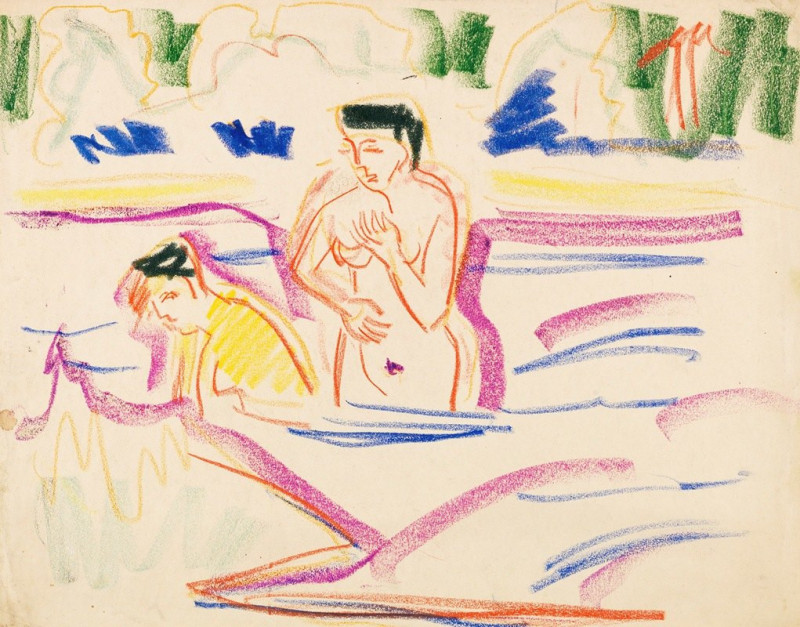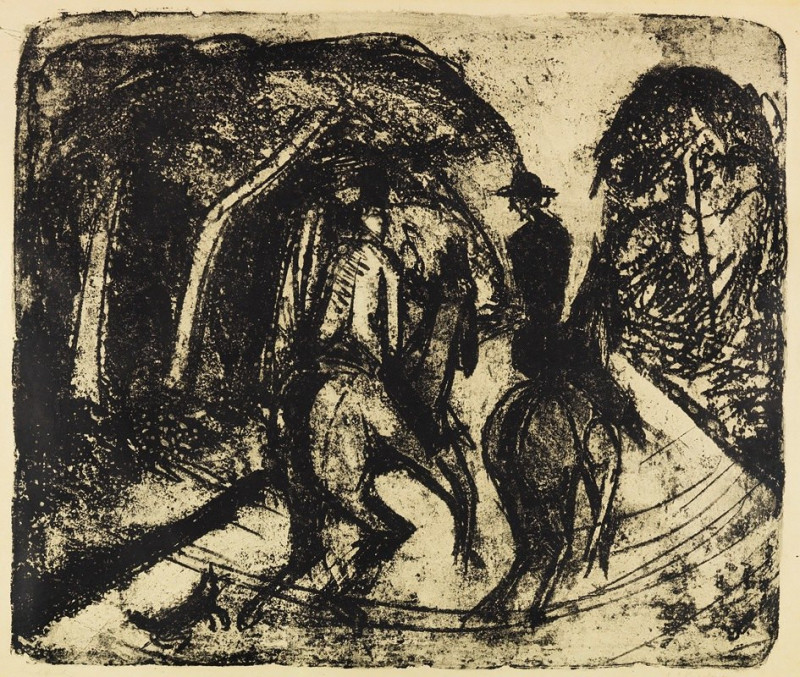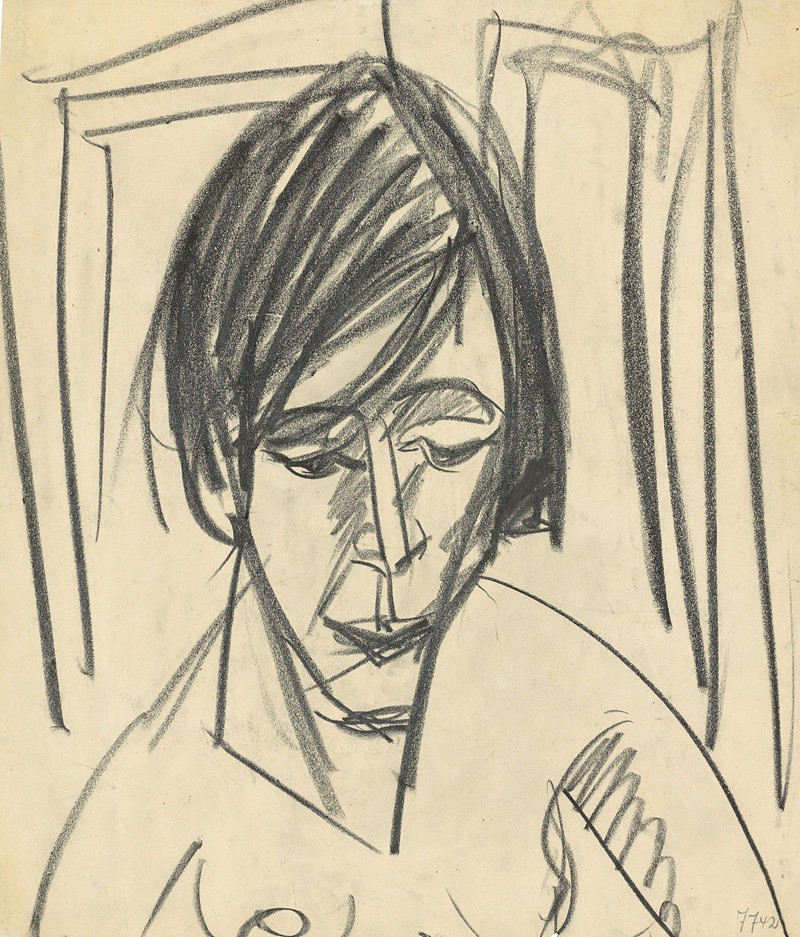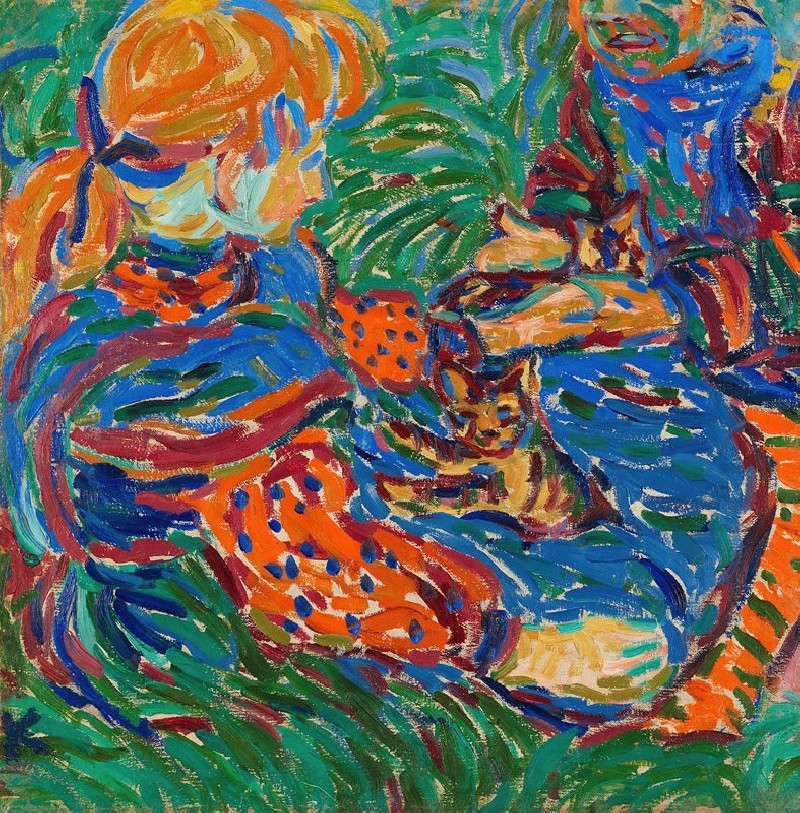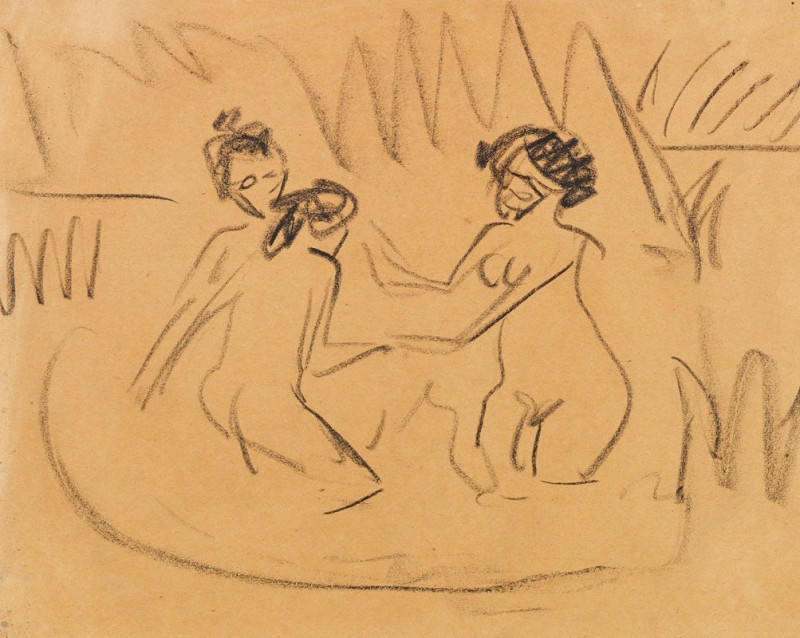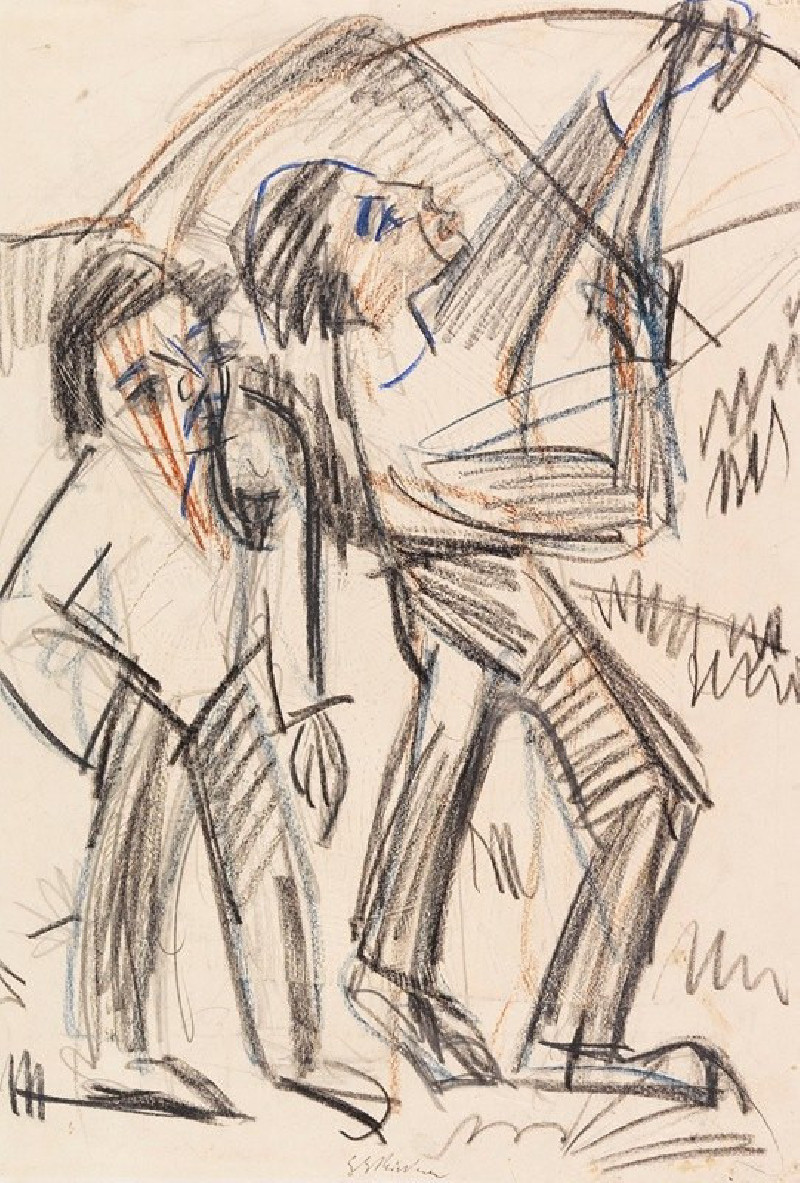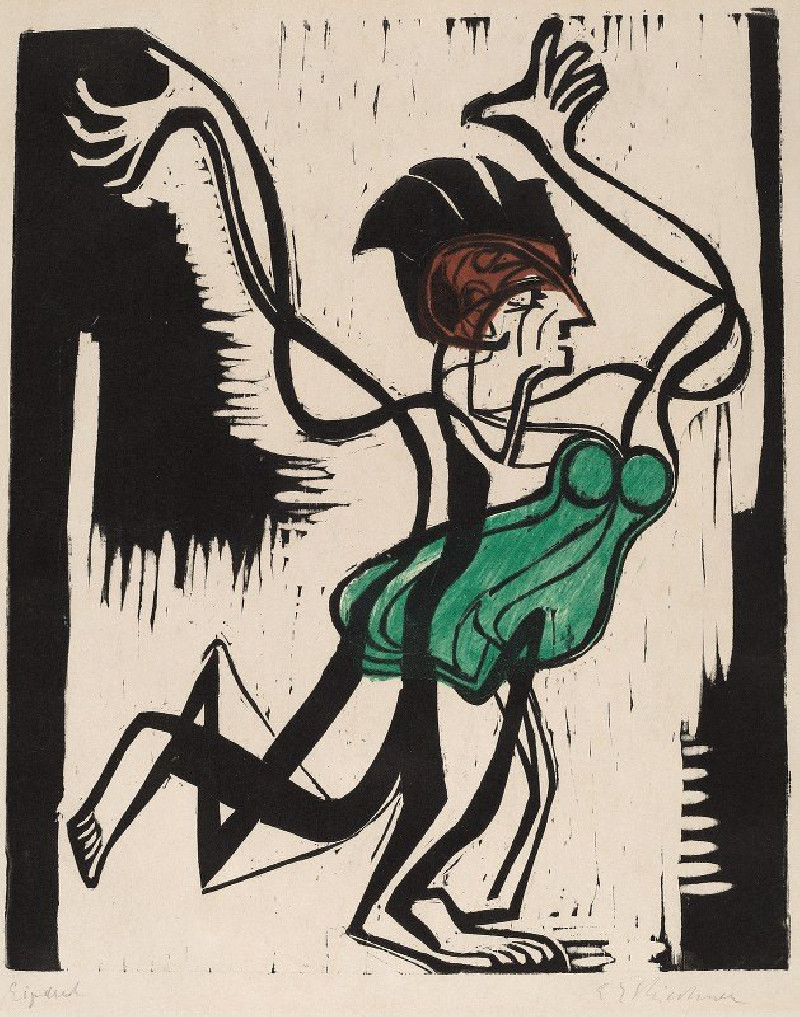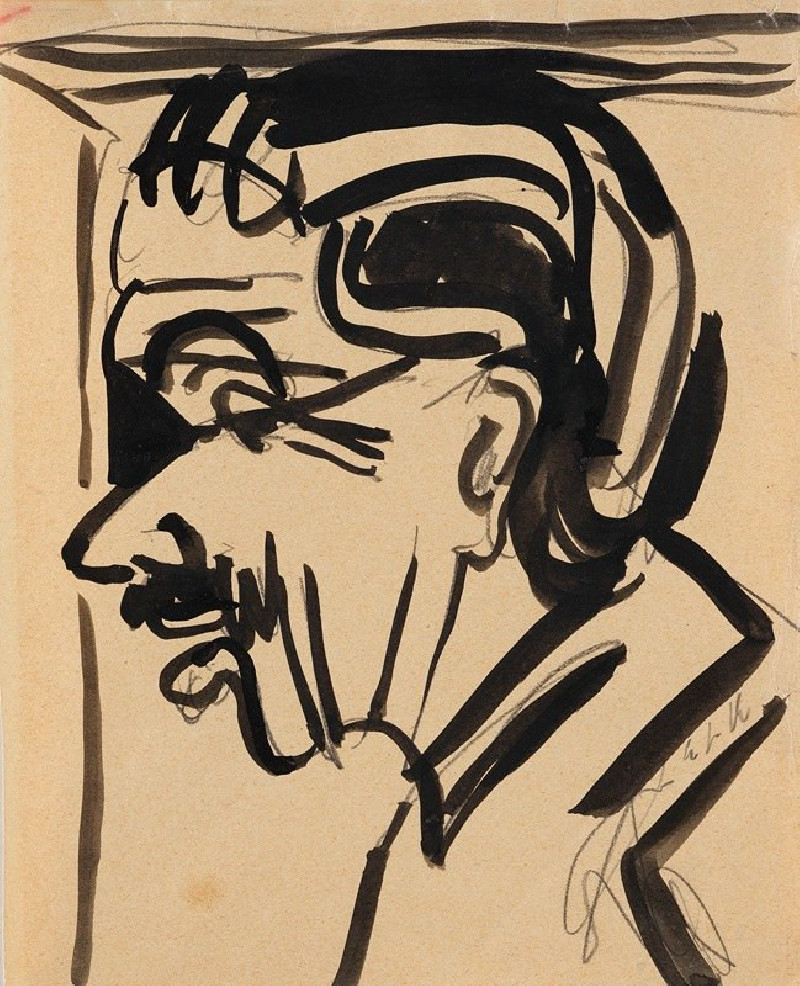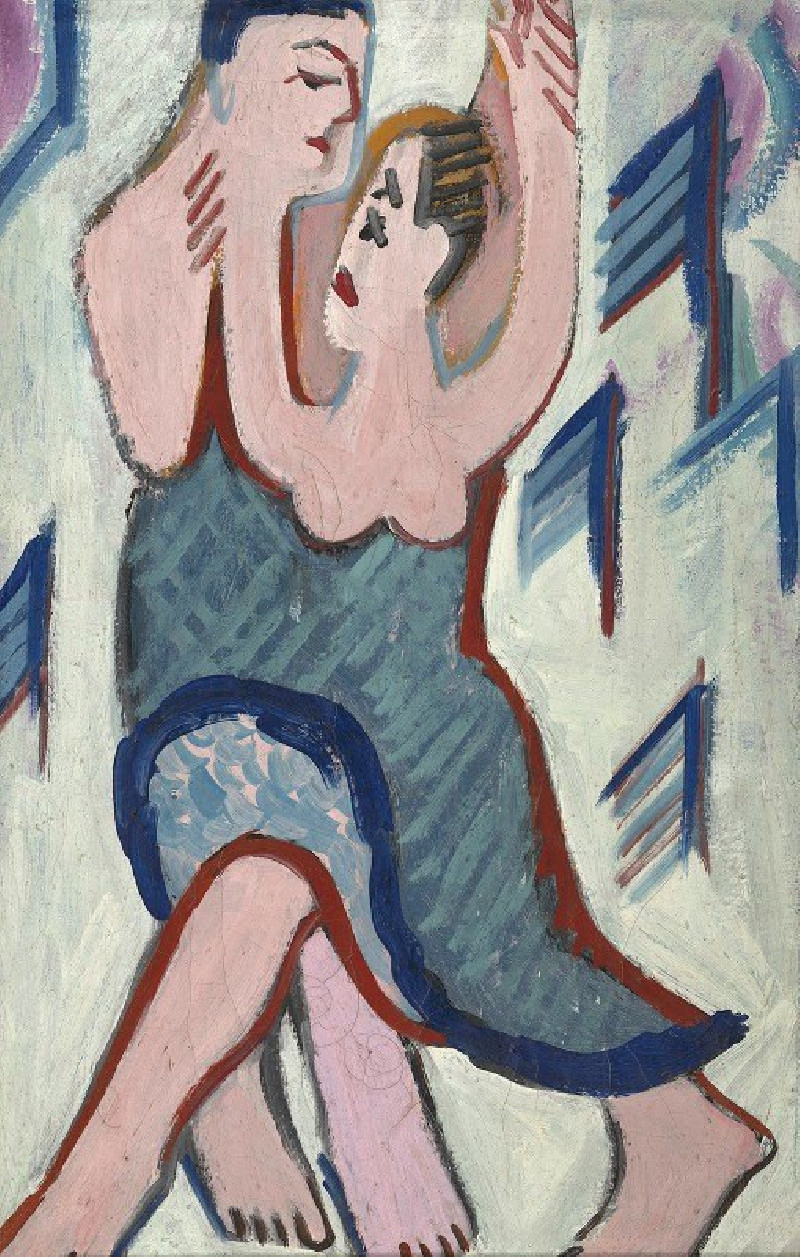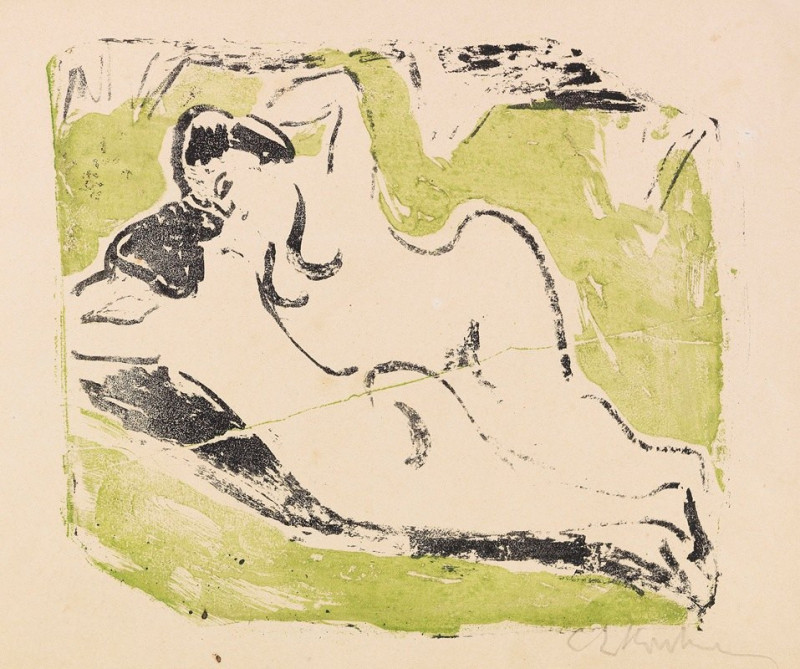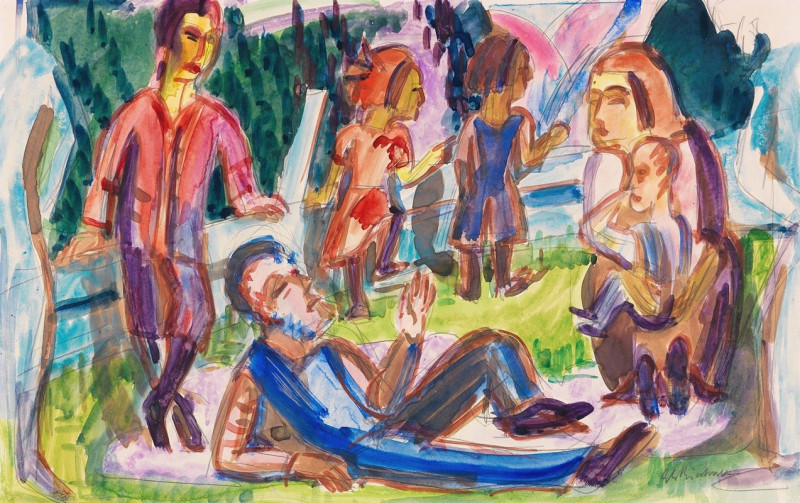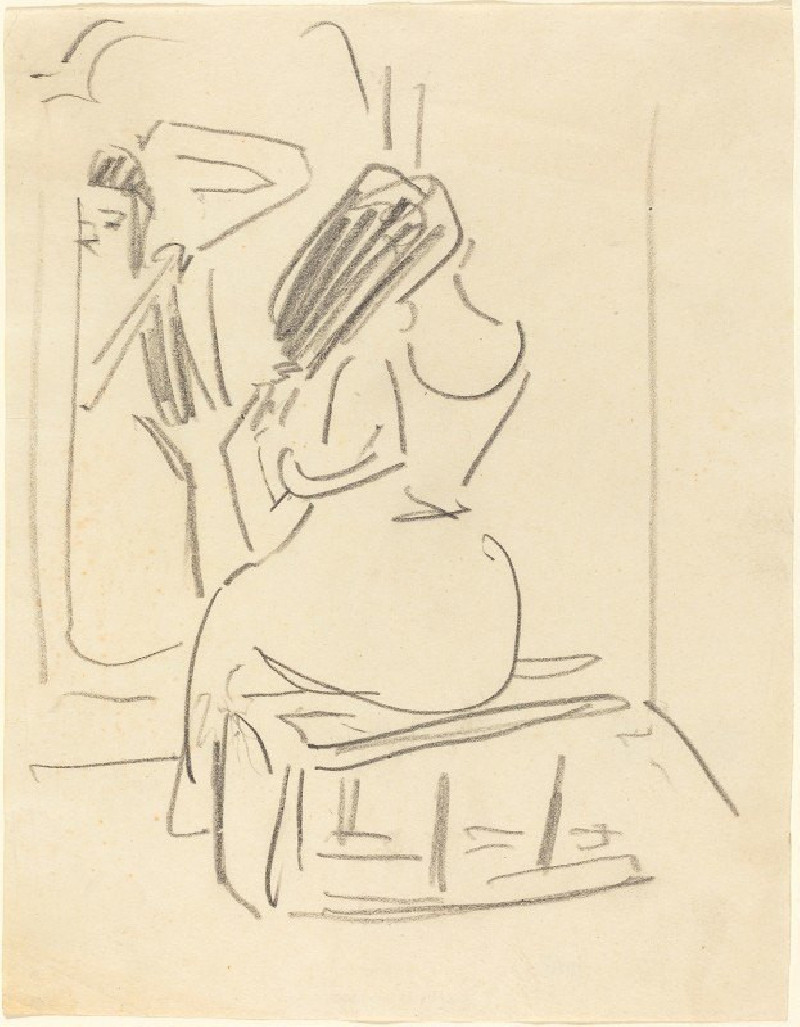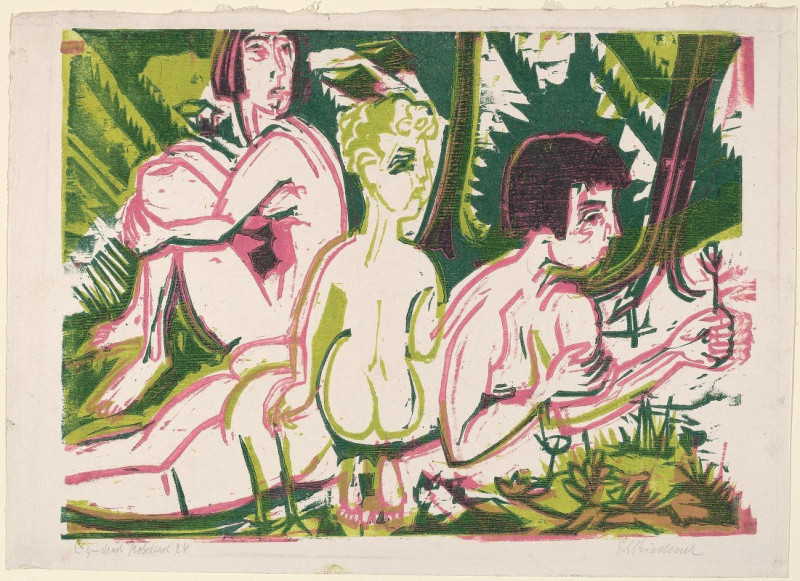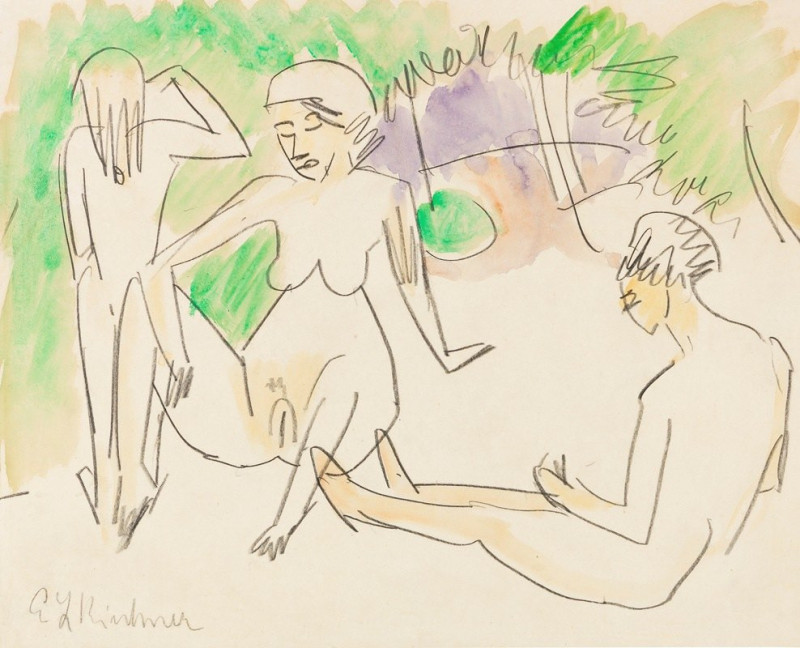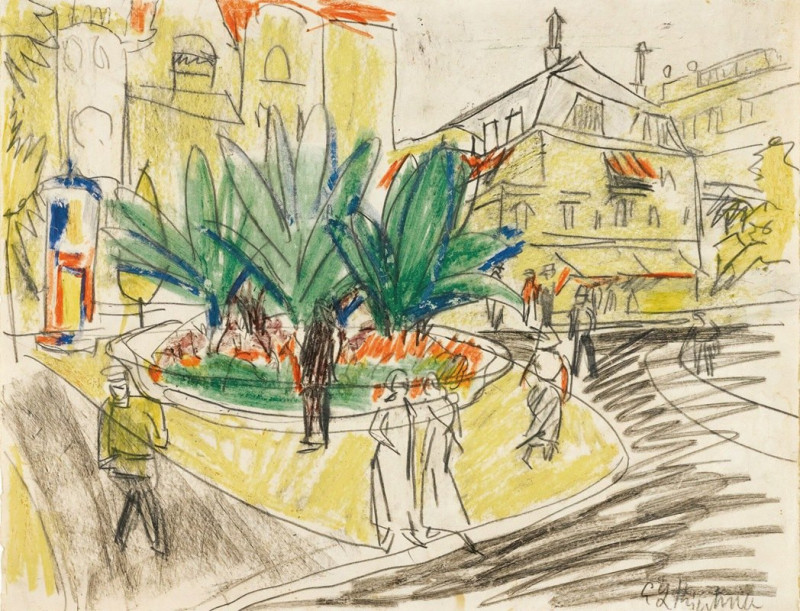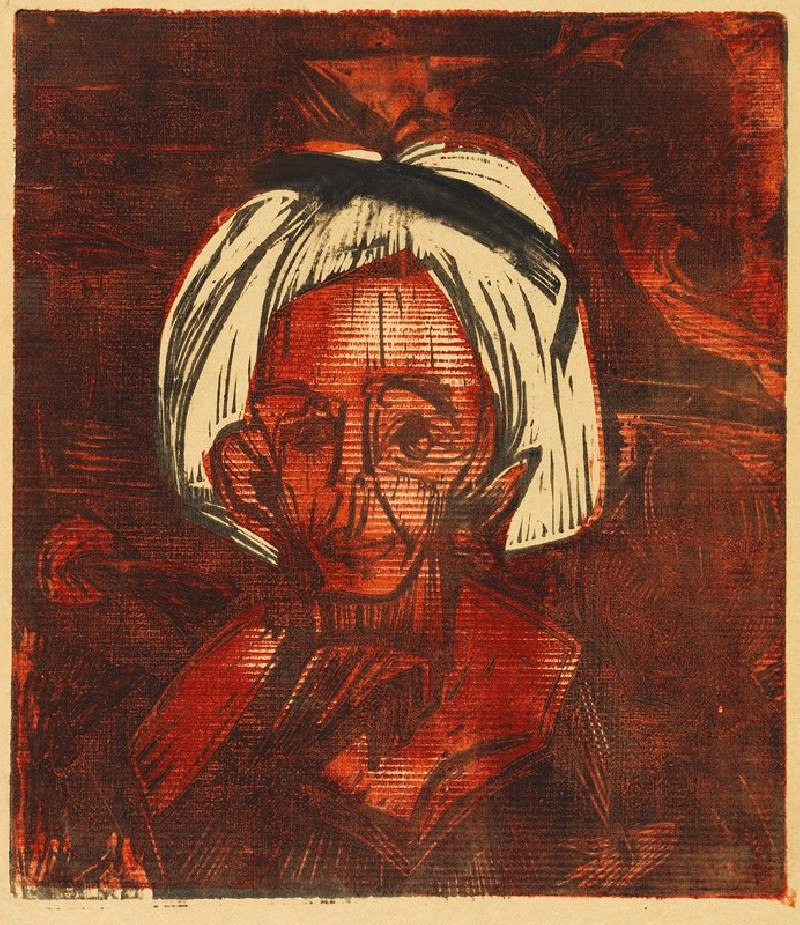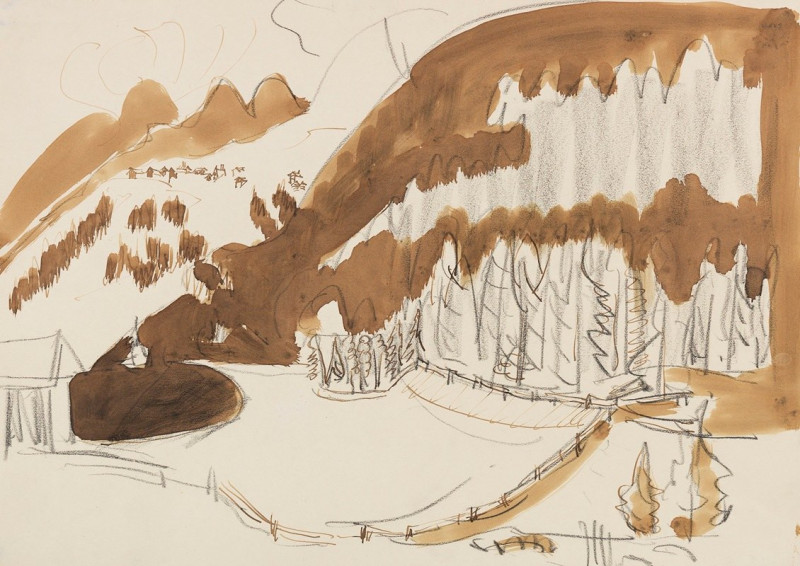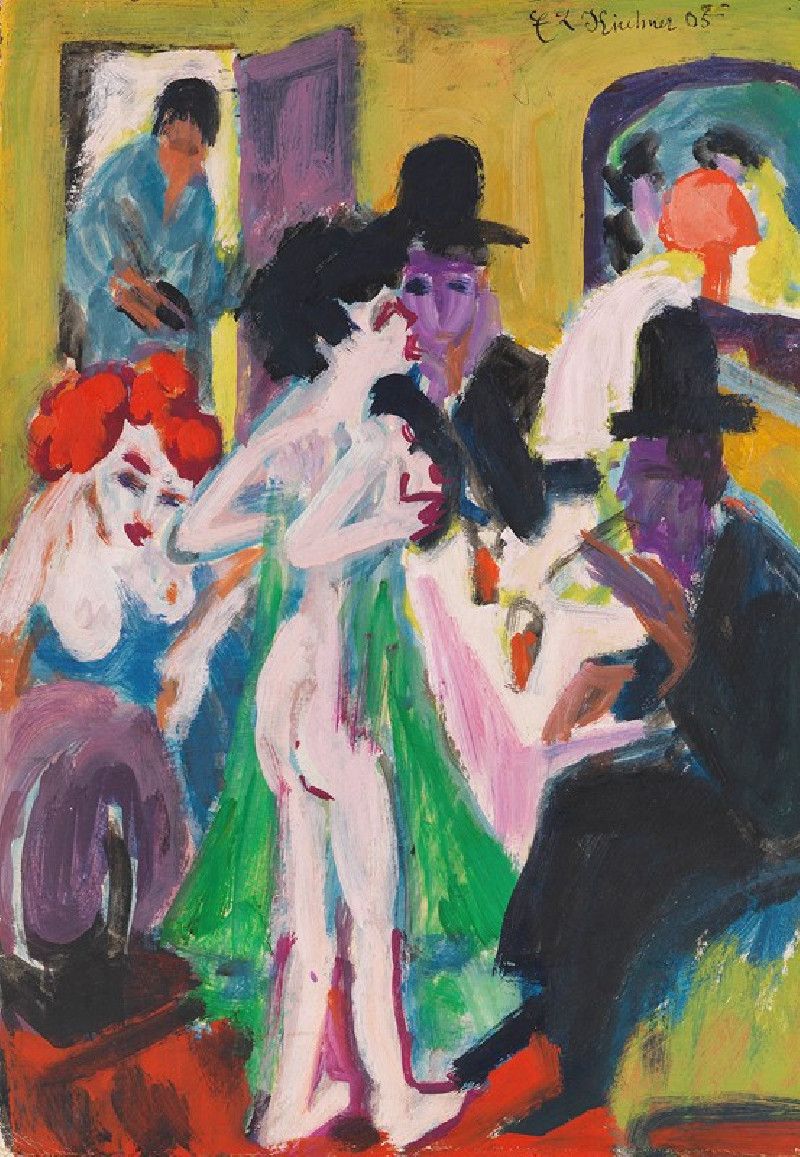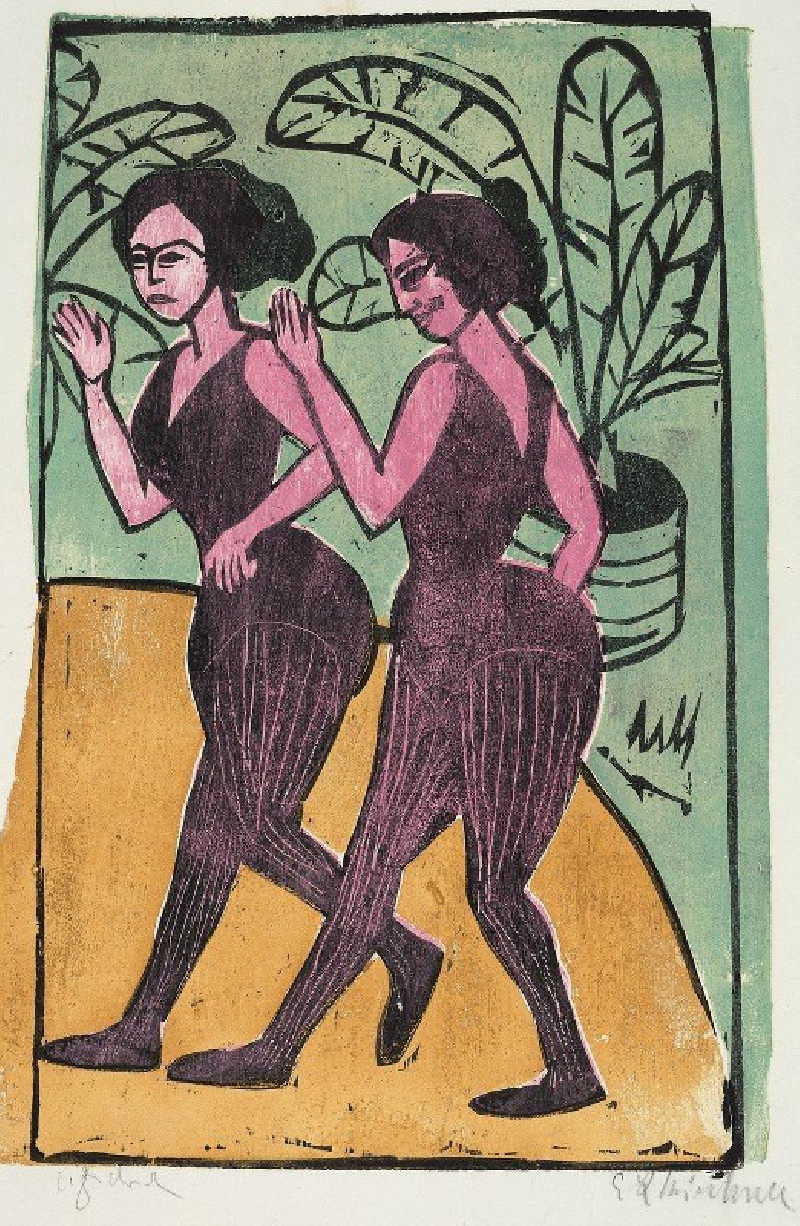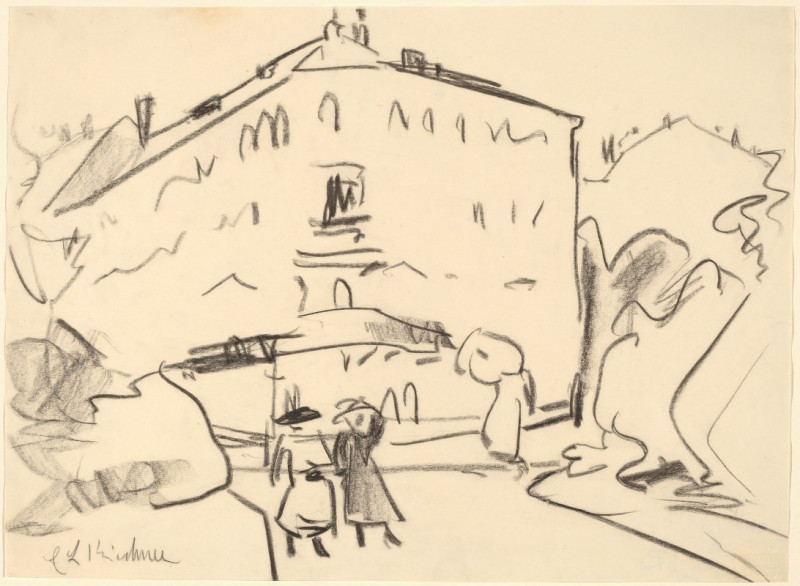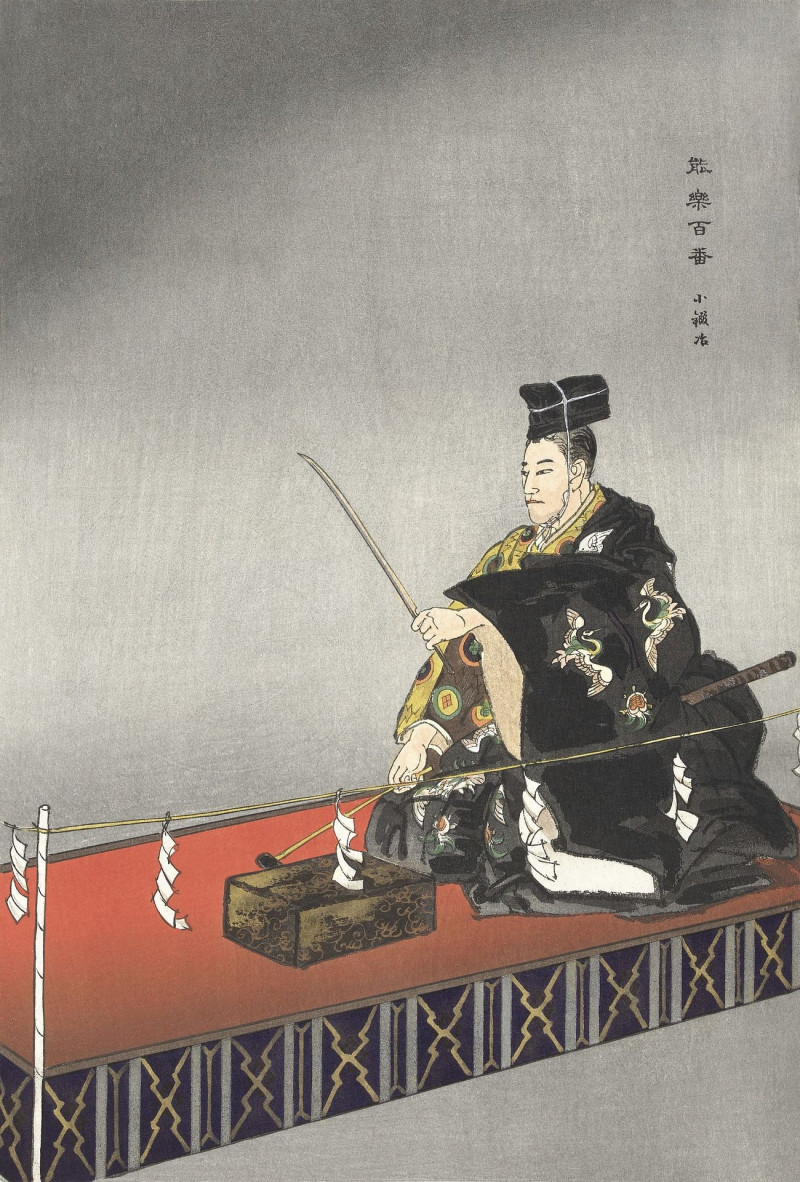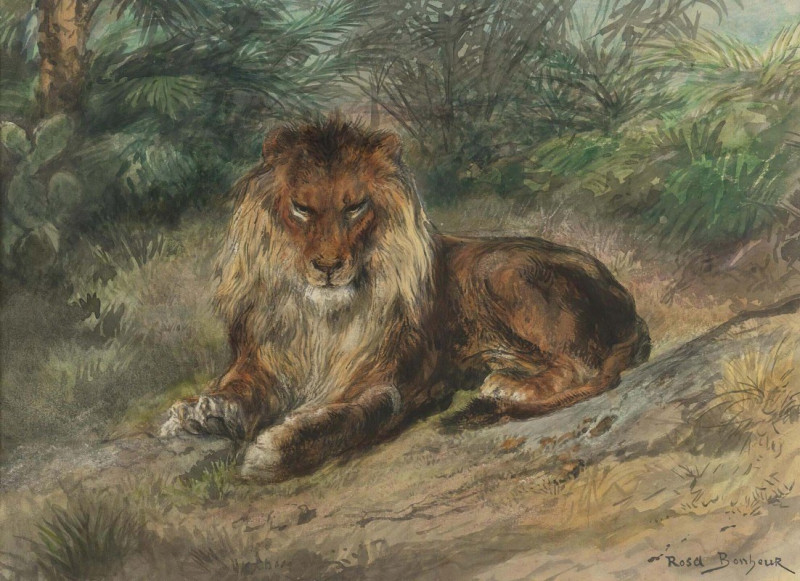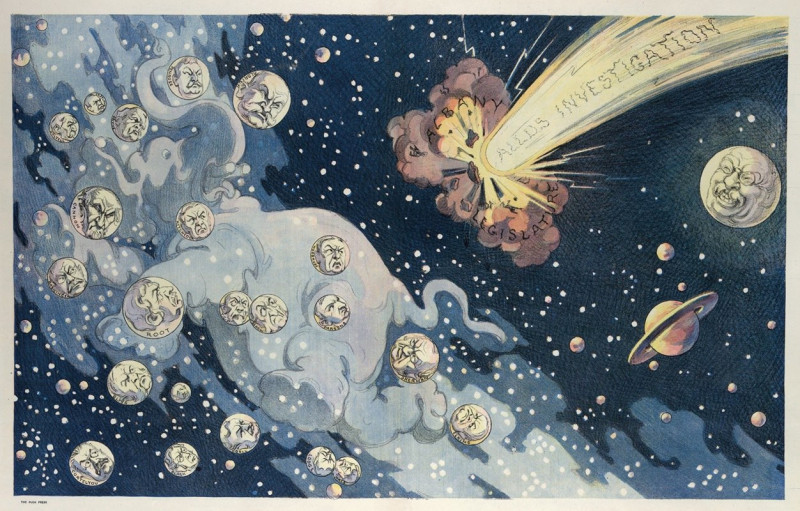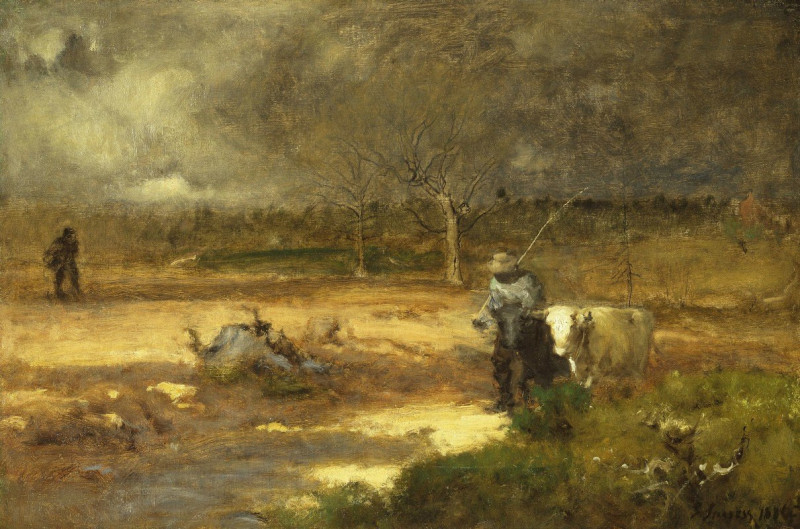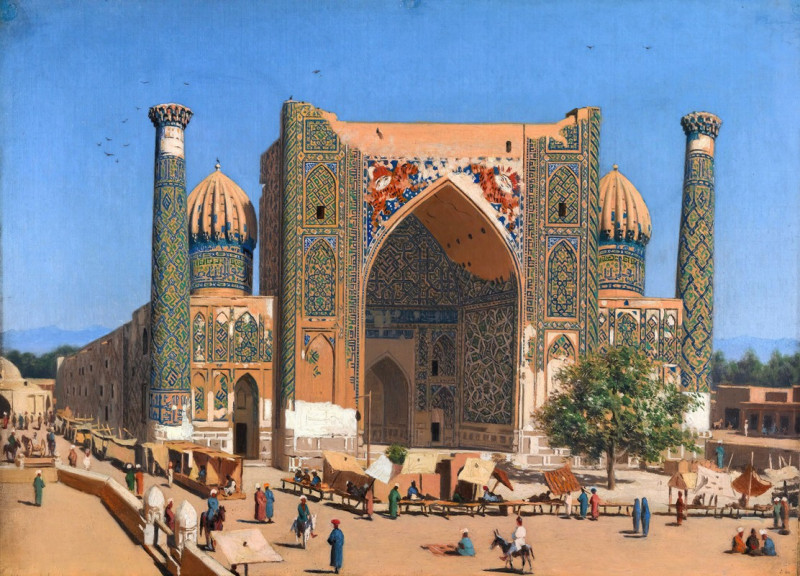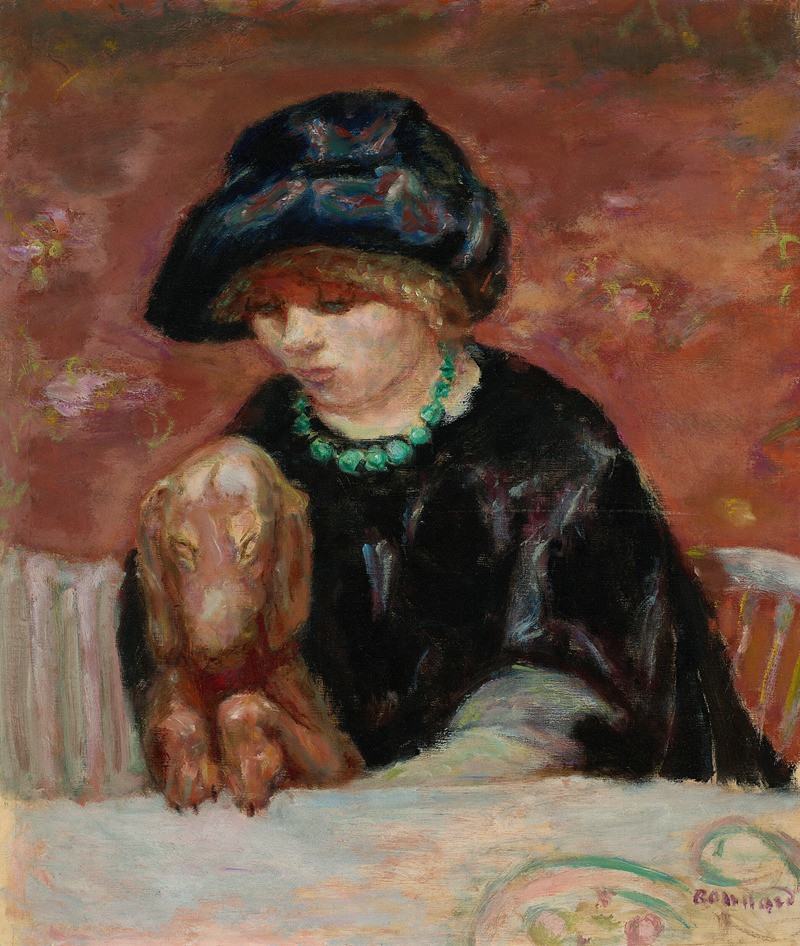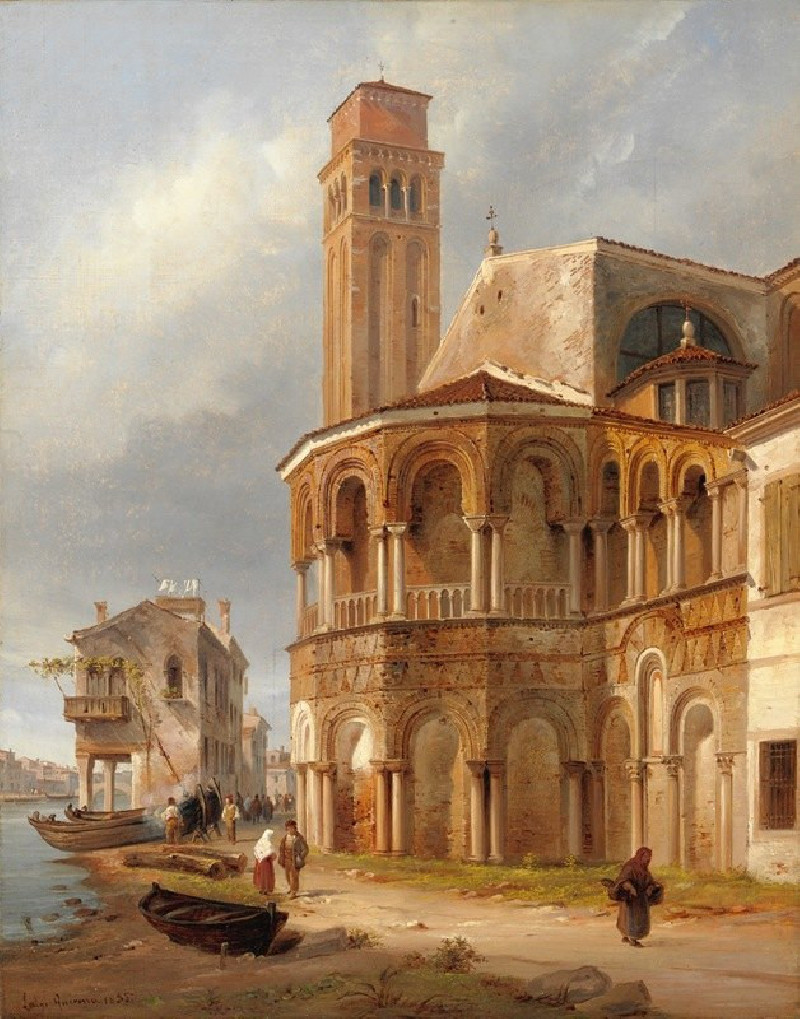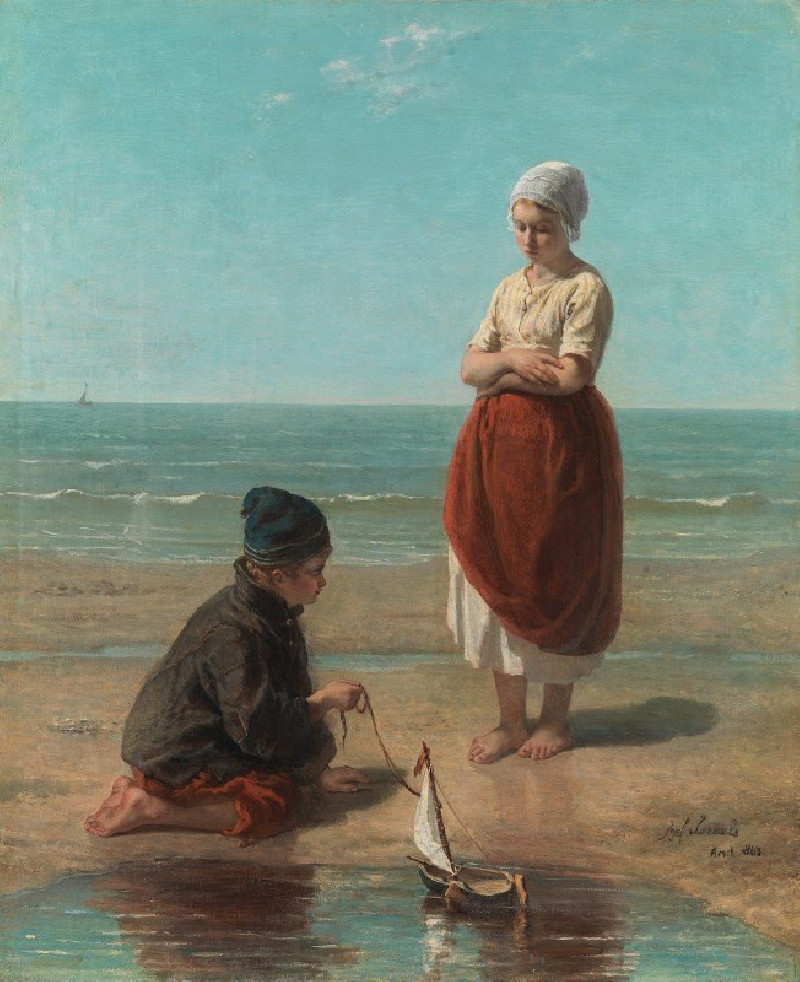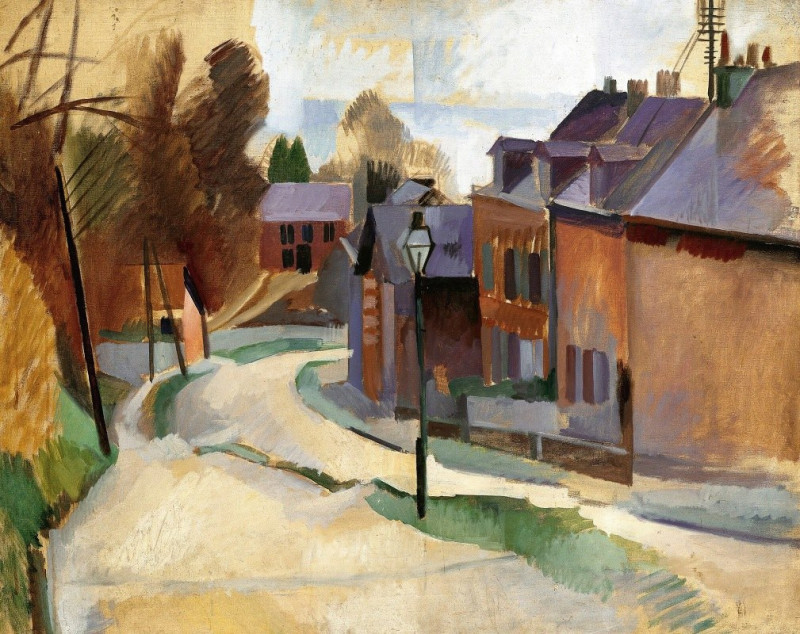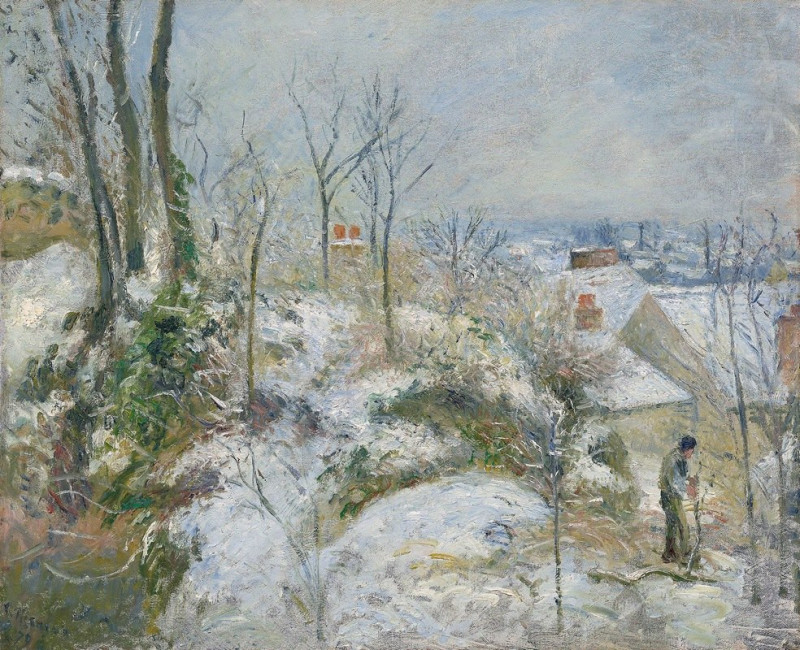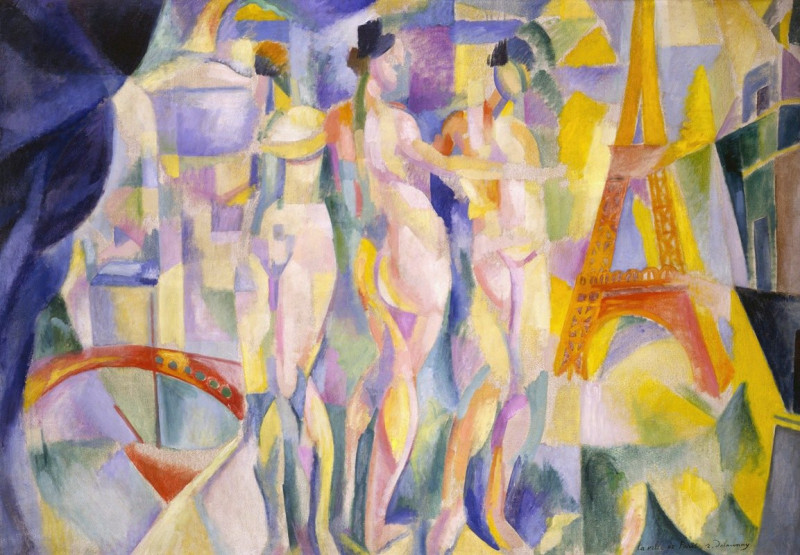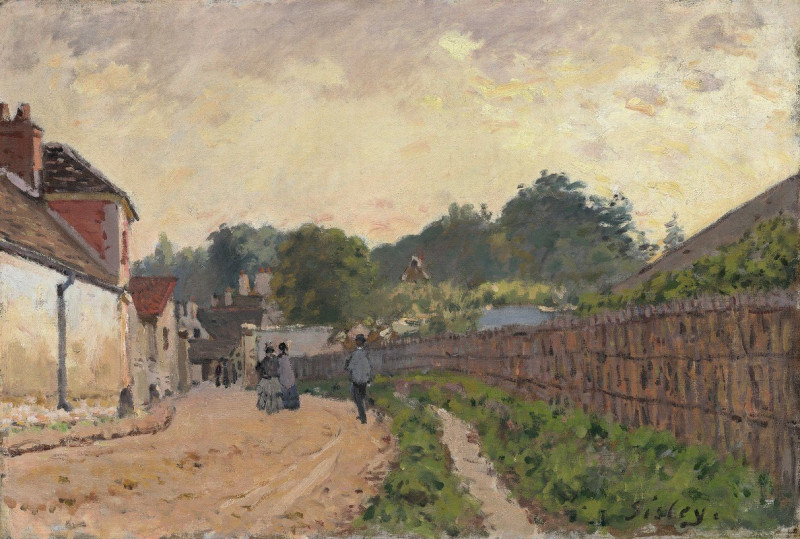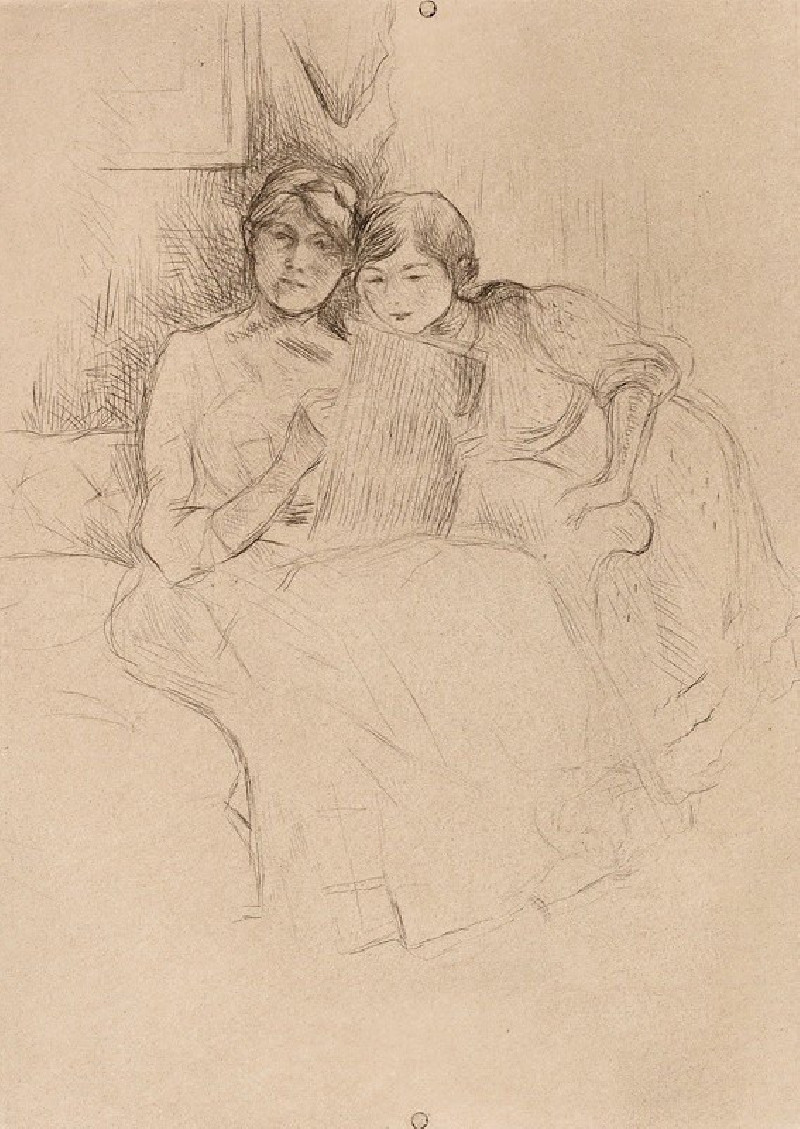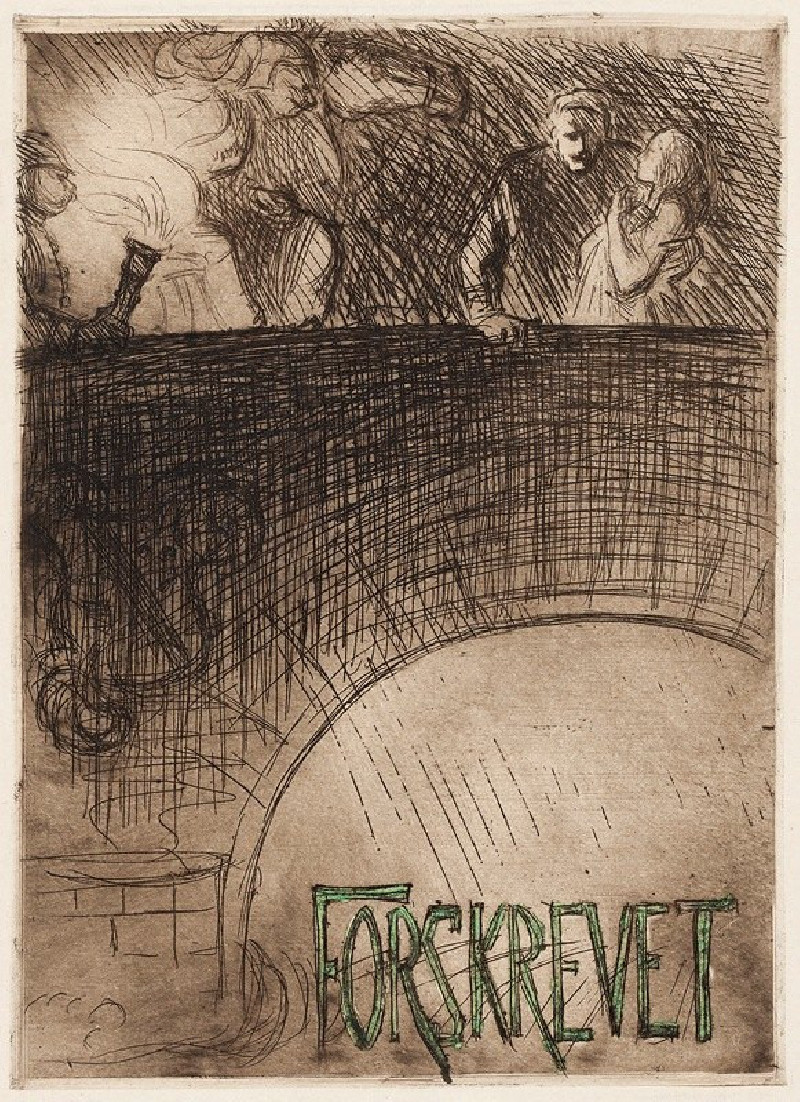Kämpfe – Qualen der Liebe (1915)
Technique: Giclée quality print
Recommended by our customers
More about this artwork
Ernst Ludwig Kirchner's "Kämpfe – Qualen der Liebe" is a compelling depiction of emotional turmoil and expressive vitality, painted in 1915. This artwork vividly illustrates Kirchner’s bold use of color and his ability to convey deep psychological states through abstract forms.The composition features a solitary figure, bathed in stark contrasts of blue, red, and black. The colors are not just vivid; they are almost violent in their intensity, reflecting the painting's theme of struggle and emotional pain. The subject's face is elongated and distorted, with sharp angles and fragmented lines that suggest a state of internal discord and anguish.Kirchner's style is markedly expressionist, a movement known for its emphasis on representing emotional experience rather than physical reality. The stark, jagged lines and the harrowing expression on the figure's face transmit a sense of desperation and conflict. Key elements such as the clenched hands and the striking, somewhat dissonant color palette enhance the emotional depth of the painting."Kämpfe – Qualen der Liebe" stands as a poignant exploration of the human condition, delving into themes of love, pain, and the tumultuous battles waged within the soul.
Delivery
Returns
Ernst Ludwig Kirchner (1880–1938) was one of the most important German Expressionist painters. He was a co-founder of Die Brücke, a group of German expressionist artists formed in Dresden in 1905. Die Brücke and Kirchner took inspiration from Vincent Van Gogh and Edvard Munch, as well as African and Oceanic art. They used woodblock printing as a medium to showcase their signature style: flat, unrealistic images with vivid colors. The recurring themes in Kirchner's artworks included exotic cultures, faraway landscapes, self-portraits, dancers and Berlin street life. His paintings and prints effectively portrayed non-European cultures despite the fact that he never traveled outside of Europe.

